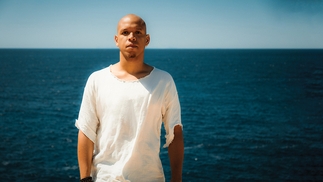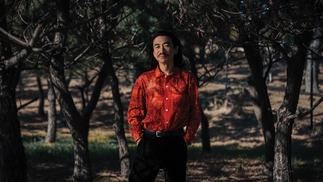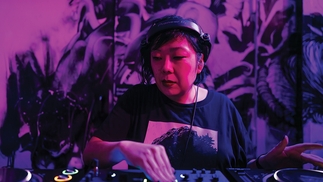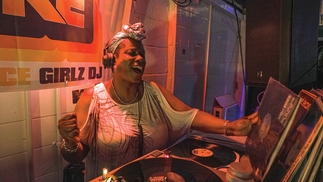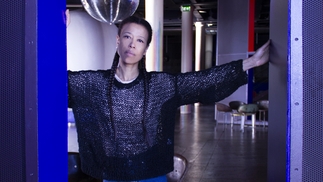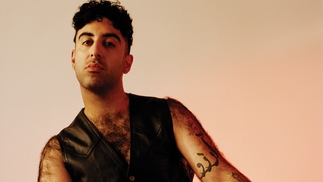On Cue: Boddhi Satva
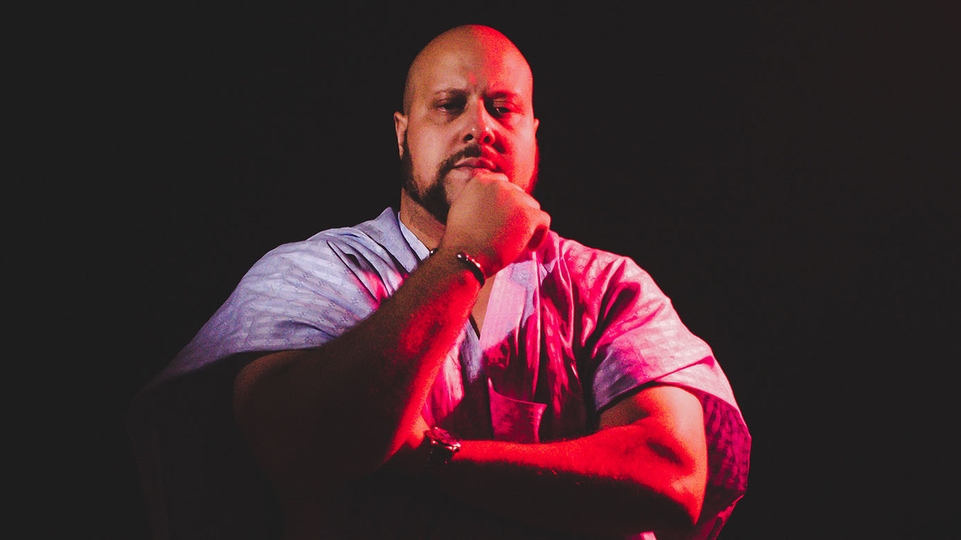
Longstanding Afro house artist Boddhi Satva is devoted to authenticity, and has spent years developing a personal style that is inseparable from his roots in the Central African Republic. Alongside a mix demonstrating his ancestral soul sound, he speaks to Ria Hylton about his life in music, and the importance of staying true to his creative instincts
When DJ Mag calls up Boddhi Satva on a Friday afternoon at his home in Lisbon, the conversation quickly turns to the history of Afro house. “If we really want to go deep, you can’t forget Danny Tenaglia, Kai Alcé, Brett Dancer,” he tells DJ Mag, naming many more artists. “We’re talking about some genuinely underground names that went under the radar — they paved a beautiful way for the Afro house we know today.”
An Afro house pioneer himself, born and raised in the Central African Republic (CAR), Satva has lived in Europe for over two decades and is likely to cite Alton Miller, Masters At Work and Osunlade as key musical influences — but everything he touches is deeply rooted in the continent of his birth. “What I want people to get is love and connection with their ancestry, wherever they come from,” he says about his productions, “and because it is African in essence, it should tap into each and every one of us.”
And although his music success owes much to the 4/4, the producer is well-known for taking inspiration from genres outside the electronic music wheelhouse. Reggae, R&B and jazz all feature in his back-catalogue, and having worked with the likes of Teedra Moses, Les Nubians, Bilal and Davido, to name a few, he’s clearly not afraid to collaborate with names beyond the underground. It’s this particular fusion of sounds that sets Satva apart from many of his Afro house peers.
“He is a different kind of breed,” DJ/producer Leroy Styles tells DJ Mag over the phone. “There’s a lot of soul in his songs, it’s really sophisticated what he’s doing. When I heard ‘Transition’, that was the moment where I thought, ‘I need to do an album’.” Rotterdam’s Cincity shares similar thoughts. “When you hear Boddhi, you know it’s a Boddhi track,” she tells us. “His whole sound is so established you only have to listen for 10 seconds to know — that’s every producer’s goal.”
Satva productions are steeped in the folkloric rhythms of his childhood, filled with crisp snares, bright horn sections and guitar riffs in the soukous and makossa traditions. Having released critically acclaimed albums, collaborated with African legends, and published works with Defected, Yellow Productions and Innervisions, Satva has been a staple name in the house scene for some time.
More recently, he launched the BBE imprint Batakari, with BBE label head Peter Adarkwah, as a way of promoting the past and future sounds of the African continent. He also released ‘Manifestation’, his most recent album, which made DJ Mag’s Album of the Month in June 2022.
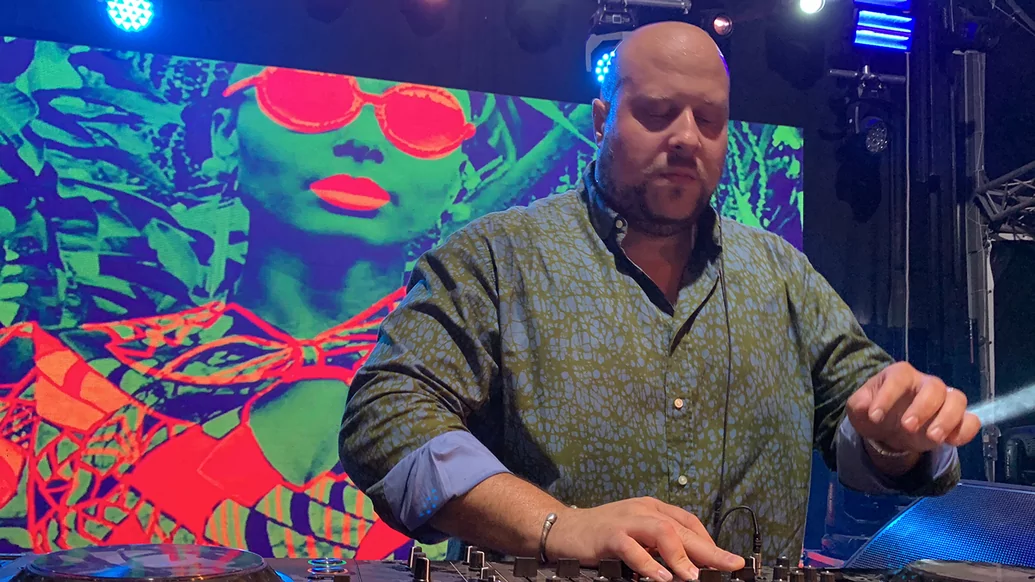
But in our conversation, and from the many interviews that he’s given over the years, it appears that working on his own terms has met some resistance. From collaborations with mainstream artists, to a commitment to Afro-centric DJ sets not so easy on the Western ear, and his willingness to produce genres beyond house, the journey has proved, at times, something of a slog. “From the beginning, I had to defend every choice that I made,” Satva tells us. “I didn’t want to fold into what was prescribed, and when you refuse to be the status quo” — he pauses for a deep chuckle — “you have to be ready to face some challenges, let’s just put it that way.”
Satva was born Armani Kombot-Naguemon in Bangui, the CAR capital, to parents of American, Belgian, Central African Republic and French heritage. He takes his stage name from Satva Varti, a monk who happened to be passing by his parents’ place before Satva was born. As was custom at the time, the couple hosted the spiritual traveller in their home for some weeks before he moved on to the Democratic Republic of the Congo, and just before their parting, Varti told the pair that he had no money but had left a maternity gift that would bless them. Armani arrived nine months later. His father’s work as a diamond dealer brought the family to Bria, where Satva was raised in great comfort and wealth. He and his siblings were homeschooled by teachers flown in from the capital, and his father, a prominent figure in the county, hosted regular events for dignitaries and the wider community.
“I’ve seen my mother and my dad really practise the concept of social capitalism. They were able to make a lot of money and redistribute that wealth, directly and indirectly,” he explains. “Eventually, we had all my friends from the village come to learn with me at my school — those are some of the things my parents were doing.”
Satva speaks seven languages, was baptised Catholic and grew up immersed in the Islamic and local spiritual practices. Though never directly expressed, he believes his parents wanted to ensure he felt connected to the different traditions of his lineage, without the anxieties that can come from being of mixed heritage. “My father was mixed race, my mother was white,” he explains, “so it was important for me to be able to navigate both origins in a way that would be positive. I don’t think it was conscious, but looking back, they handled that very well.”
Lineage and a deep affinity for the mystical have shaped Satva’s work, and it’s a journey which began early on in his life. Watching broto performances outside the family home, given by Banda ethnic groups of the same name, made a lasting impression. The broto horns, carved out of tree roots, produce polyphonic textures when played in concert and are believed to express the spirits of the ancestors. “I remember being very scared, like it was transporting me to a realm I wasn’t comfortable with,” he tells us. “It was only when I was older that I started having a much better connection with these experiences and enjoying them. I think it triggered my very strong bond to traditional sounds.”
Satva had discovered deep, soulful and acid house by the time he moved to Belgium to complete his studies. Visits from his London-based uncle had brought CDs to Bria, awakening him to the spiritual potentials of house. His father hoped his first-born would take on his trade, and Satva did cut diamonds for a while, but the call of music drew him into other circles.
A meeting with Alton Miller through friends set him on his course. “Alton Miller gave me a lot of knowledge,” he shares. “This is the guy who saw the birth of deep house and techno, and he became my roommate for almost four years.” Together, the duo released the ‘Prelude To A Motion’ EP and ‘See The Day’, but Satva was still searching for an Afro-centric sound distinctly his own, free from imitation. “I knew I had a sound in me, but I just didn’t know how to tap into it.”
It was while working as an intern at Urban Groove radio station that Satva was sent to interview Osunlade ahead of a show in Antwerp. “My hands were wobbling when I met him,” he remembers. “I’d been listening to this man’s music for all this time, and here I am about to sit next to him.” Satva was nursing a recent heartbreak at the time, something Osunlade picked up on during the interview. “He said, ‘I’m going to dedicate my set to you’ — let me tell you, I had never cried on a dancefloor in my life until that point, but I cried as I was dancing, tears of joy and gratitude.” That evening, ‘Bria’s Offering’, the lead single to the 2007 ‘Satva Varti’ EP, was born, and with it Satva’s sound: ancestral soul.
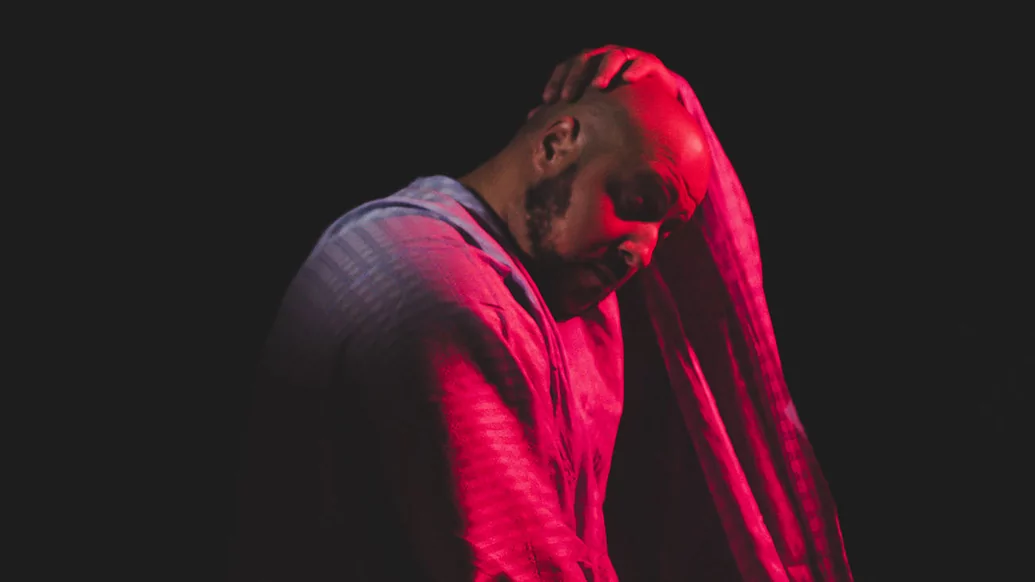
For a while, Satva was a wunderkind, his name on everyone’s lips. Osunlade released ‘Bria’s Offering’ on his Yoruba label and Louie Vega flew him out to New Jersey to produce his first album, ‘Invocation’. The record evolved the deep and soulful house sounds — where cowbells would normally go, he put snares, for example, and lush basslines were minimal. Tracks were driven, for the most part, by an intricate rhythm section and lilting guitar riffs. Satva also reached out to legendary African singers like Oumou Sangaré for collaboration, finding new ways to connect with and pay tribute to the elders.
But then he started delving into other sounds, remixing tracks by artists beyond the underground (Beyoncé, Nicki Minaj, Drake) as part of his ‘Ancestral Soul Interpretations’ series. Some said he was diluting his work. There was also critique about his DJ sets — they were too ‘African’ and needed to appeal more to audiences beyond the continent. Satva resisted, and continues to resist, the suggestions.
In 2015, the artist dropped ‘Transition’, his second album made in the wake of his father’s death the previous year. The record, released in tribute to his dad, fully embraced more of his sounds of interest. UK soul legend Omar (Lye-Fook) featured alongside Afrobeats star Davido and US R&B singer Teedra Moses, but even on the more commercially viable tracks, like ‘Skin Diver’, those snares are a giveaway.
Satva closed out his 10-year trilogy last year with ‘Manifestation’, which was released five months after his mother’s passing. The album clocks in at 31 tracks and goes full-on eclectic. Tracks like ‘Finesse Me’ and ‘Ragga Ragga’ have crossover feels, while lead single ‘Kilulu’, made with close friend Kaysha, DJ Spilulu and H. Baraka, boasts a horn section and drum fills that are quintessentially Satva. Made again in a period of mourning, the album was a moment for the artist to both close a chapter and reclaim his space in the Afro house sphere. His production range is broad, but his house sound, as a producer and selector, has remained very much in the organic camp, deeply rhythmic and full of soul. Does he agree? “I’m happy that I’m able to maintain that identity,” comes the reply. “I’m all for diving into different forms, but nothing beats a good Dr. Dre kick and snare. That boom-bap is going to hit you, always.”
Production and DJing aside, Satva is a much-loved figure among his peers. “He has an energy — how he dances, how he brings in the sound, I love the guy,” Styles tells us. “When my father passed away, Boddhi was one of the first to call me,” Cincity shares. “You make a lot of friends in the DJ scene, but you never know who’s sincere — these little things mean the world to me.” Cincity booked Satva for her Cloud 8 collective’s ADE collaboration with Ziongate last October, and he played a heartwarming set, dressed in a staple patterned shirt, cigar wedged firmly between thumb and forefinger, side and cross stepping in true house dance style.
“I had never seen so many people, diverse humans having a good time,” he says about the night. “I love that, I really, really love that — it brought me back to stories shared by Vega and Alton Miller, about the good days and how it used to be. I haven’t felt that in a long time with Afro house.”
A sonic polyglot, who has also managed to mould a sound so singular, so clearly his own, it’s a wonder why more people don’t know about Boddhi Satva. Maybe his work is too complex, too ‘African’, even. But the artist is too busy planning his next moves to care. “I do whatever my heart and mind wants to celebrate. The people that like what I do embrace that.”
Tracklist:
Boddhi Satva ‘Mantra’
Citizen Deep ft. Jessica LM ‘Dtjoh’
Vanco & Kususa Feat. Bonokuhle Nkala ‘Slide’
Boddhi Satva, DJ Galio & Priss ‘Keep On Moving On (Main Mix)’
Caiiro ‘The Akan (Boddhi Satva Ancestral Soul Edit)’
Deejay Poco ‘Xukitaile’
Afrokillerz ‘Bora Bora’
Afrikan Drums ‘Comitin Dedo’
LeoBeatz ‘Trumuno’
Mixbwé ‘Wilding’
Boddhi Satva ‘Segou's Funk’
Homeboyz ‘Wind And Fire’
Dj Gálio, DJ Satelite ‘Mbenda ‘
DJEFF ft. Kyaku Kyadaff ‘Mercedes (Manoo Remix)’
Hypaphonik & Mr.Joz ‘Horn of Africa (Original Mix)’
Boddhi Satva ‘Self Portrait’
Boddhi Satva & Kingsley Ibeneche ‘Unlearn’

